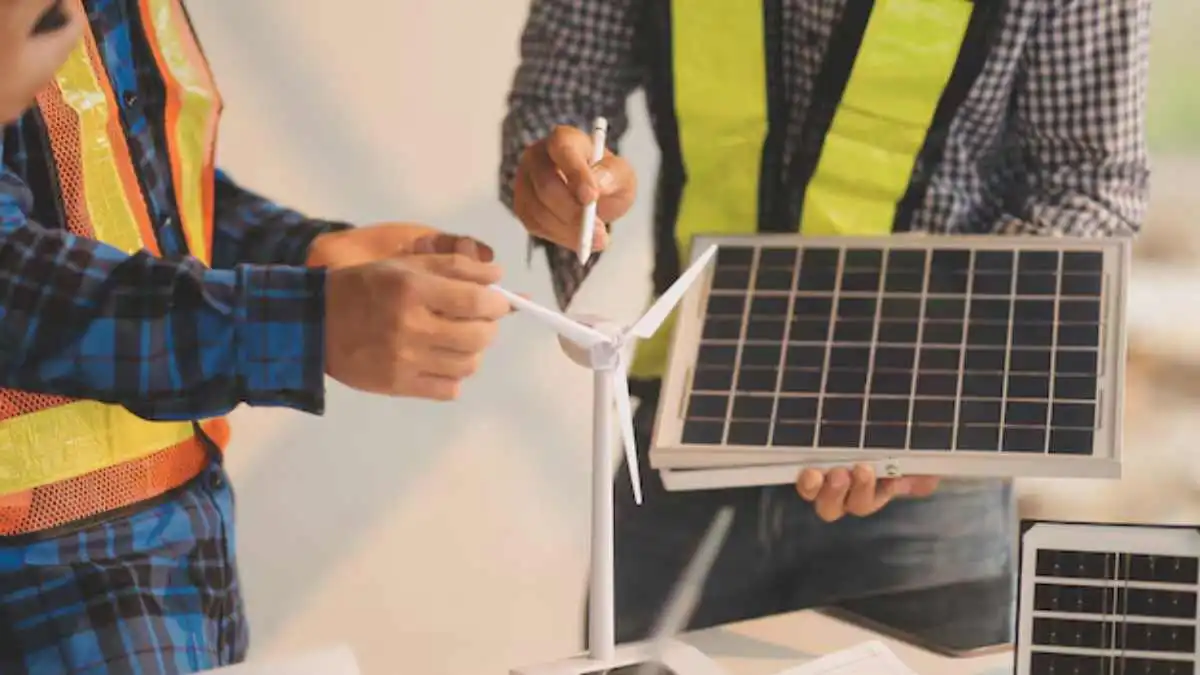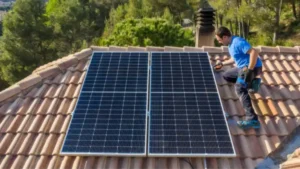TECHNOLOGY
How Residential Solar Contractors Help Maximize Solar Panel Efficiency?

Investing in solar energy is an excellent way for homeowners to reduce electricity bills and move toward energy independence. However, the efficiency of a solar panel system depends on more than just the quality of the panels. Proper installation, maintenance, and system optimization ensure panels perform at their highest capacity. Residential solar contractors are essential in helping homeowners get the most out of their solar energy systems. They implement strategies that improve efficiency and energy production, from designing the layout to ongoing maintenance. We will explore how residential solar contractors help homeowners maximize solar panel efficiency and ensure long-term benefits from their investment.
Role of solar contractors in maximizing efficiency
1. Optimizing Solar Panel Placement and Angle
Proper placement and orientation are among the most critical factors in maximizing solar panel efficiency. Residential solar contractors evaluate the direction and tilt of a home’s roof to determine the best positioning for the panels. In most cases, south-facing panels receive the most sunlight throughout the day, but other orientations can still provide substantial energy production when installed correctly. Contractors also assess factors such as seasonal sun angles and shading from nearby trees or buildings to ensure panels receive maximum exposure to sunlight.
The tilt angle of the panels affects how efficiently they capture sunlight. A properly adjusted tilt ensures the panels generate more electricity throughout the year, especially in regions with seasonal changes. Contractors may use mounting solutions such as adjustable racking systems to improve efficiency if a roof has limited space or is not at an optimal angle. Ground-mounted panels are also an option when a roof is not ideal for solar panel placement. By carefully positioning panels based on the home’s location and surroundings, solar contractors ensure homeowners receive the highest possible energy output from their system.
2. Using High-Quality Components for Maximum Efficiency
The quality of solar panels and system components directly impacts efficiency. Contractors help homeowners select durable, high-performing panels that maintain energy production for years. Some panels offer higher conversion rates, meaning they generate more electricity from the same amount of sunlight. Choosing the right panels based on efficiency ratings and performance guarantees is essential to maximizing long-term benefits.
In addition to panels, the inverter is a key component that affects system efficiency. The inverter converts the direct current (DC) electricity the panels produce into alternating current (AC) used in homes. Contractors help homeowners choose the right inverter type based on their energy needs. String inverters, microinverters, and power optimizers have different advantages depending on roof layout and shading conditions. An adequately matched inverter ensures minimal energy is lost in the conversion process, helping homeowners get the most out of their solar system.
Wiring and electrical connections also impact efficiency. Contractors ensure all connections are correctly installed to minimize resistance and energy loss. High-quality wiring and efficient circuit design reduce the chances of voltage drops and ensure a smooth flow of electricity from the panels to the home’s electrical system. By selecting the right components and ensuring proper installation, solar contractors help maximize the efficiency and reliability of the solar power system.

3. Reducing Shading and Environmental Obstructions
Even minor shading on a solar panel can significantly impact energy production. Residential solar contractors perform a detailed site assessment to identify potential shading issues affecting efficiency. Trees, chimneys, and nearby structures can cast shadows that reduce the amount of sunlight reaching the panels. Contractors recommend solutions such as trimming trees, adjusting panel placement, or using microinverters that optimize the performance of each panel.
Environmental factors like dust, dirt, and bird droppings can reduce solar panel efficiency. Contractors advise homeowners on proper cleaning techniques and maintenance schedules to ensure panels remain debris-free. Professional cleaning services may be recommended to maintain peak performance in areas with high pollution or frequent dust accumulation. Ensuring that panels receive unobstructed sunlight throughout the day helps improve overall energy output and efficiency.
4. Implementing Energy Storage and Grid Integration
A well-designed solar energy system goes beyond just generating electricity—it also includes efficient energy storage and grid integration. Contractors help homeowners decide whether battery storage is a good option for their energy needs. Batteries store excess solar energy at night or during power outages, allowing homeowners to make the most of their solar system. This reduces reliance on the grid and provides additional savings by using stored energy when utility rates are higher.
For homes connected to the grid, net metering programs allow homeowners to receive credit for excess energy sent back to the utility. Contractors ensure the system is set up correctly to take advantage of these programs, maximizing financial savings. Proper integration with the grid ensures that homeowners benefit from both solar energy and utility credits, optimizing efficiency and reducing overall electricity costs.
5. Performing Regular Maintenance and System Upgrades
Maintaining a solar energy system is essential for ensuring long-term efficiency. Solar contractors provide routine inspections to check for any issues affecting performance. Regular maintenance includes cleaning the panels, inspecting wiring connections, and ensuring the inverter operates correctly. Identifying potential problems early prevents energy loss and extends the system’s lifespan.
Over time, technological advancements may offer opportunities to upgrade specific components for improved efficiency. Contractors help homeowners evaluate whether upgrading inverters, adding more panels, or incorporating energy storage solutions will enhance performance. By staying informed about new developments in solar technology, contractors provide homeowners with options to keep their systems running at peak efficiency. Regular monitoring and upgrades help ensure that the system continues to provide high energy output for decades.
6. Educating Homeowners on Energy Efficiency Practices
Beyond installing and maintaining the solar system, contractors educate homeowners on maximizing efficiency through energy conservation habits. Simple adjustments, such as using energy-intensive appliances during peak sunlight hours, help homeowners maximize their solar energy production. Contractors may also recommend smart home energy management systems that monitor and control electricity usage in real-time.
Efficient appliances, LED lighting, and improved insulation enhance energy savings by reducing overall consumption. By combining solar power with energy-efficient practices, homeowners can lower their electricity bills while making the most of their solar investment. Contractors guide energy-saving strategies that complement the solar system, ensuring homeowners achieve maximum financial and environmental benefits. For a customized approach to energy efficiency and solar system optimization, homeowners can rely on Solar Energy CT as a residential solar energy contractor to provide tailored solutions that maximize energy production and cost savings.
Enhancing Solar Efficiency for Long-Term Benefits
Maximizing solar panel efficiency requires careful planning, high-quality components, and ongoing maintenance. Residential solar contractors are essential in ensuring panels are positioned correctly, optimized system components are optimized, and shading issues are minimized. Energy storage solutions and grid integration enhance efficiency by giving homeowners more control over their electricity usage.
Regular maintenance and system upgrades help prevent energy loss and extend the solar system’s lifespan. Educating homeowners on energy conservation techniques also plays a key role in improving efficiency and lowering overall electricity costs. By working with a solar contractor, homeowners can ensure that their solar energy system operates at its highest capacity, providing long-term savings and sustainable energy production. Investing in proper installation and maintenance maximizes the benefits of solar power, making it a reliable and efficient energy solution for the future.
-

 BIOGRAPHY9 months ago
BIOGRAPHY9 months agoBehind the Scenes with Sandra Orlow: An Exclusive Interview
-

 HOME1 year ago
HOME1 year agoDiscovering Insights: A Deep Dive into the //vital-mag.net blog
-

 HOME1 year ago
HOME1 year agoSifangds in Action: Real-Life Applications and Success Stories
-

 BIOGRAPHY1 year ago
BIOGRAPHY1 year agoThe Woman Behind the Comedian: Meet Andrew Santino Wife




























